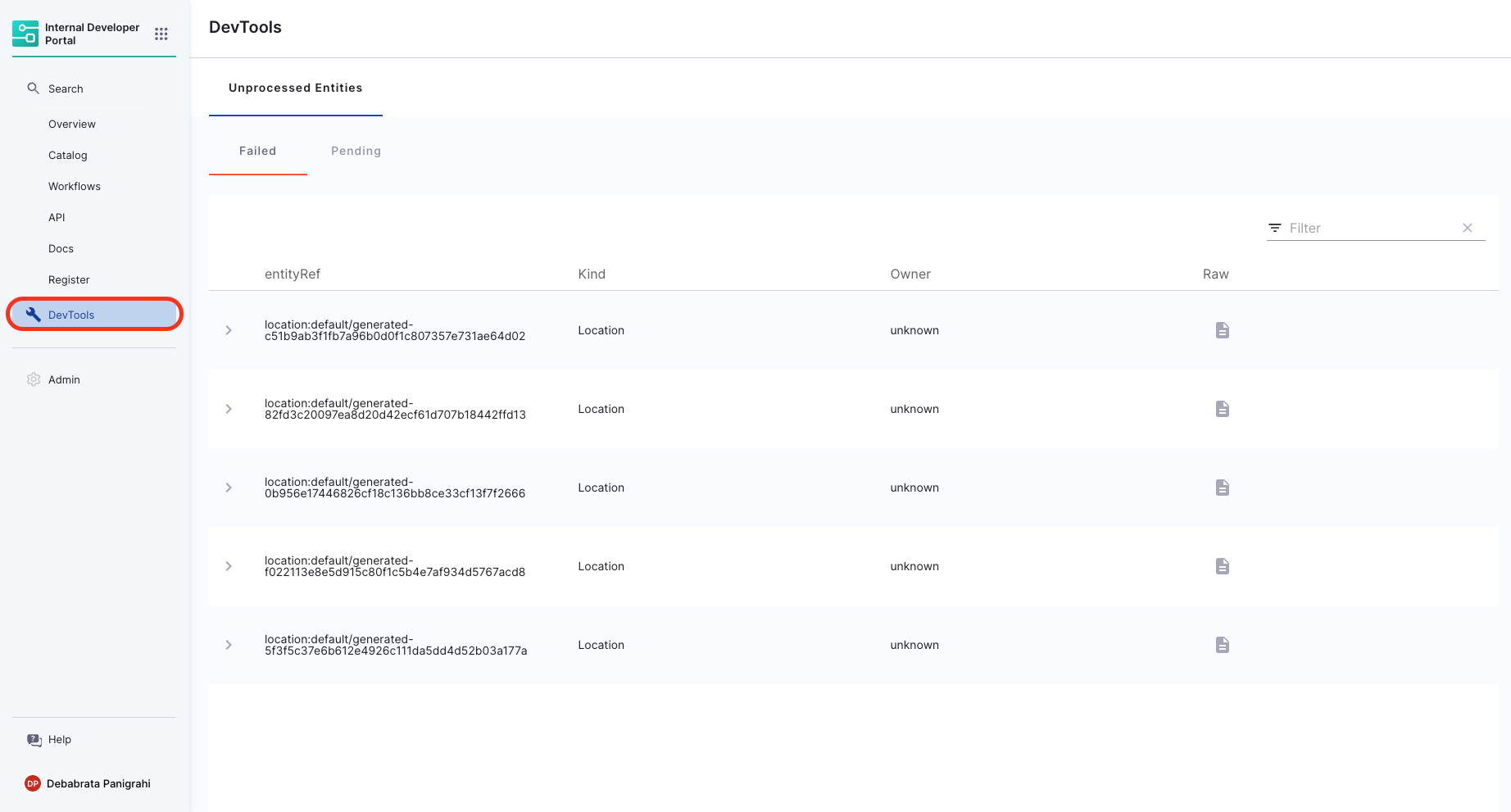Add a new software component to the catalog
Let's start with adding your software components to IDP. You can do so by creating a catalog-info.yaml file in your Git repository and then registering its URL.
Create a new catalog-info.yaml
- If you want to register an existing software component, navigate to its repository. If it is a mono-repo, navigate to its directory and create a
catalog-info.yamlat the root of the directory. The file can technically live anywhere (for example,.harness/catalog-info.yaml). You can use the following YAML code:
apiVersion: backstage.io/v1alpha1
kind: Component
metadata:
name: my-new-service
description: Description of my new service
annotations:
pagerduty.com/integration-key: <sample-service-integration-key>
tags:
- java
links:
- url: https://admin.example-org.com
title: Admin Dashboard
icon: dashboard
type: admin-dashboard
spec:
type: service
lifecycle: production
owner: team-a
system: project-x
Following are the key fields that you must update:
metadata.name. This should be a unique name for your component. Usually, it is the name of the service.metadata.description- A description for your new component.spec.type- The new software component could be aservice,library,website, or any other type.spec.owner- The user group identifier of the team that owns the component.
- Once the file is created in your Git repo, copy the full URL to the file. For example,
https://github.com/harness-community/idp-samples/blob/main/catalog-info.yaml.
Register the software component
- In the left navigation, select Create, and then select Register Software Component.
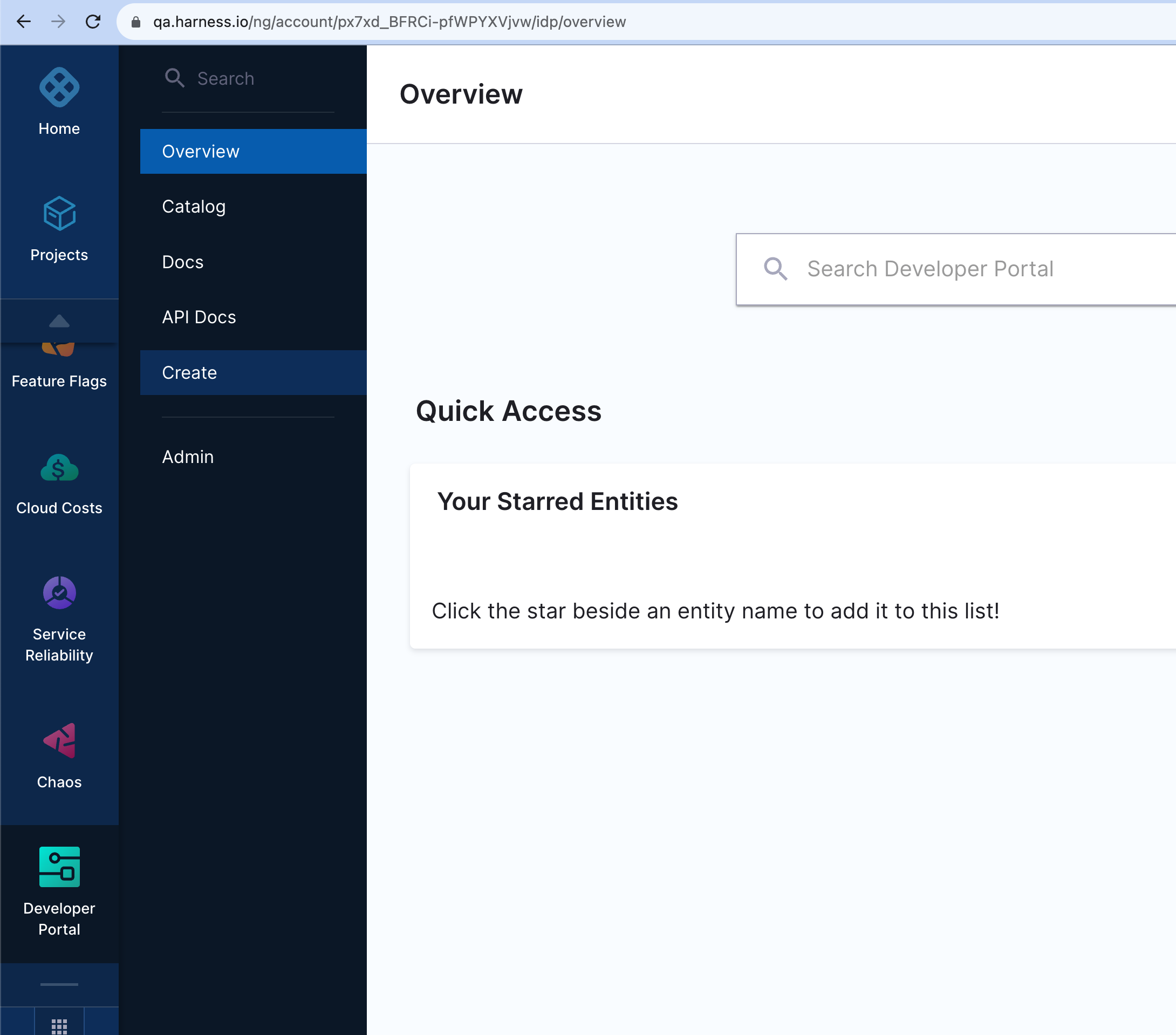
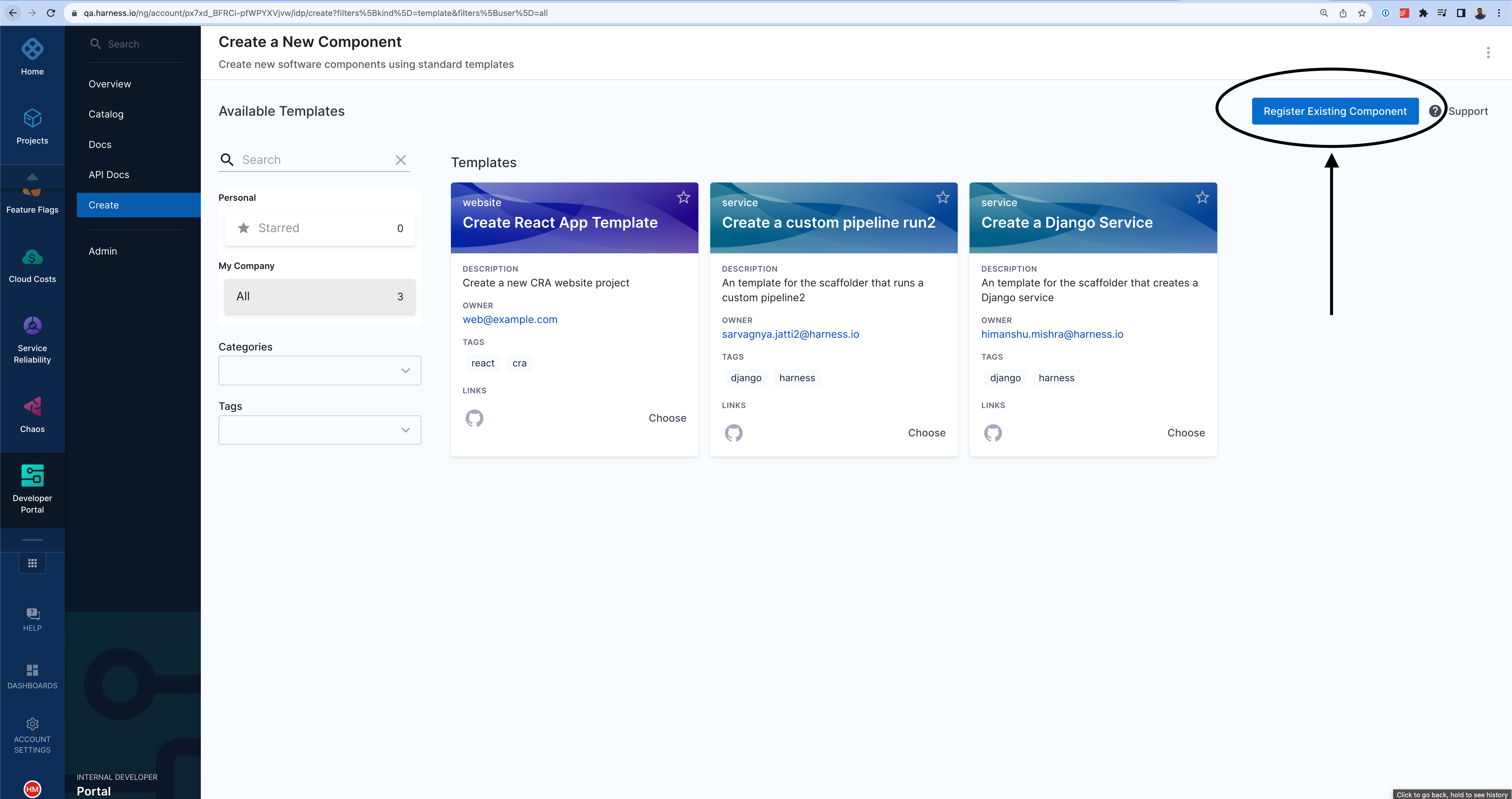
- Other Git Providers
- Harness Code Repository
- Enter the URL to your new
catalog-info.yaml.
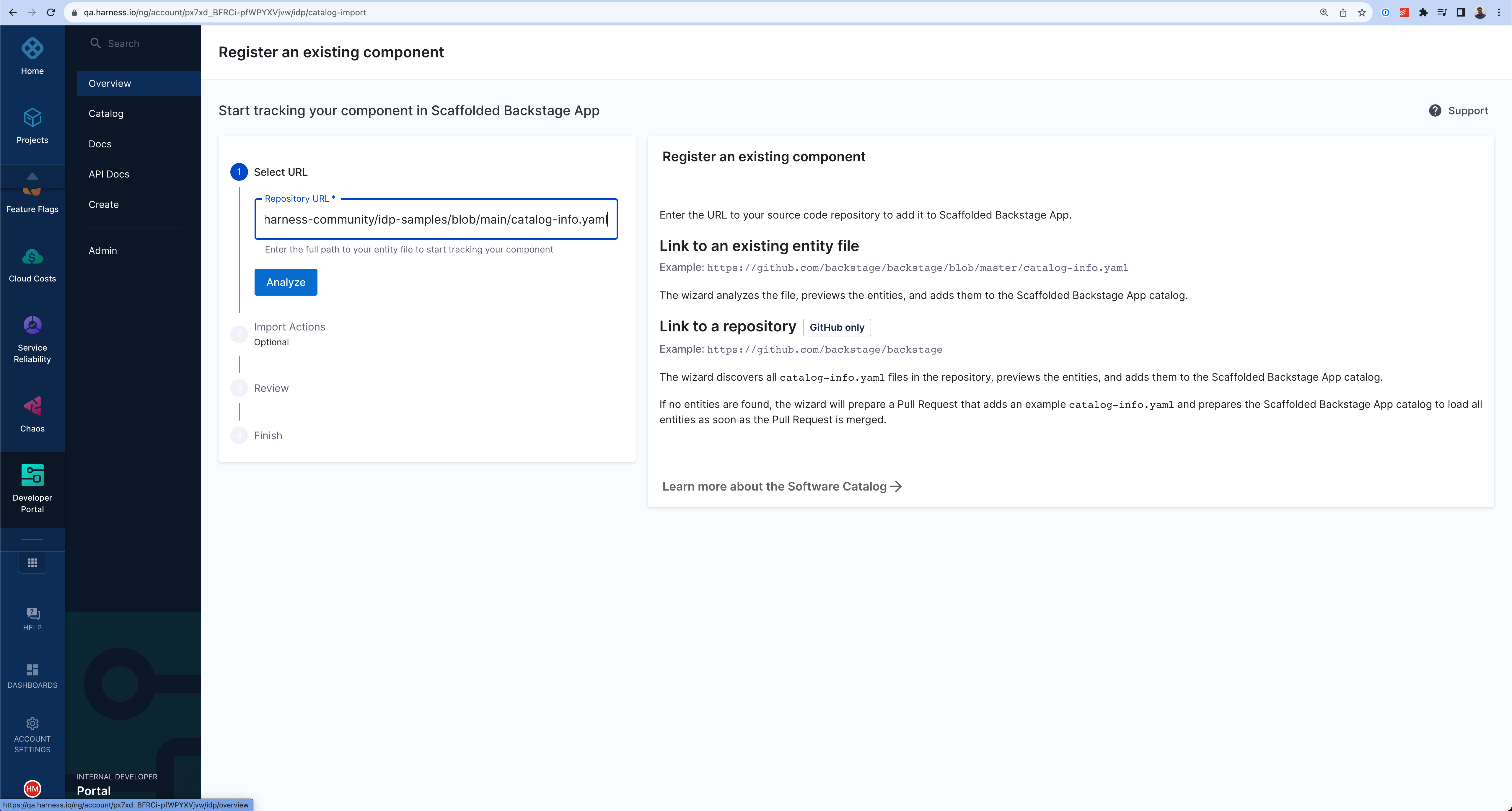
- Once you copy thr URL for
catalog-info.yamlfrom Harness Code Repository make sure to replace vanity url domain withaccounts.eu.harness.io
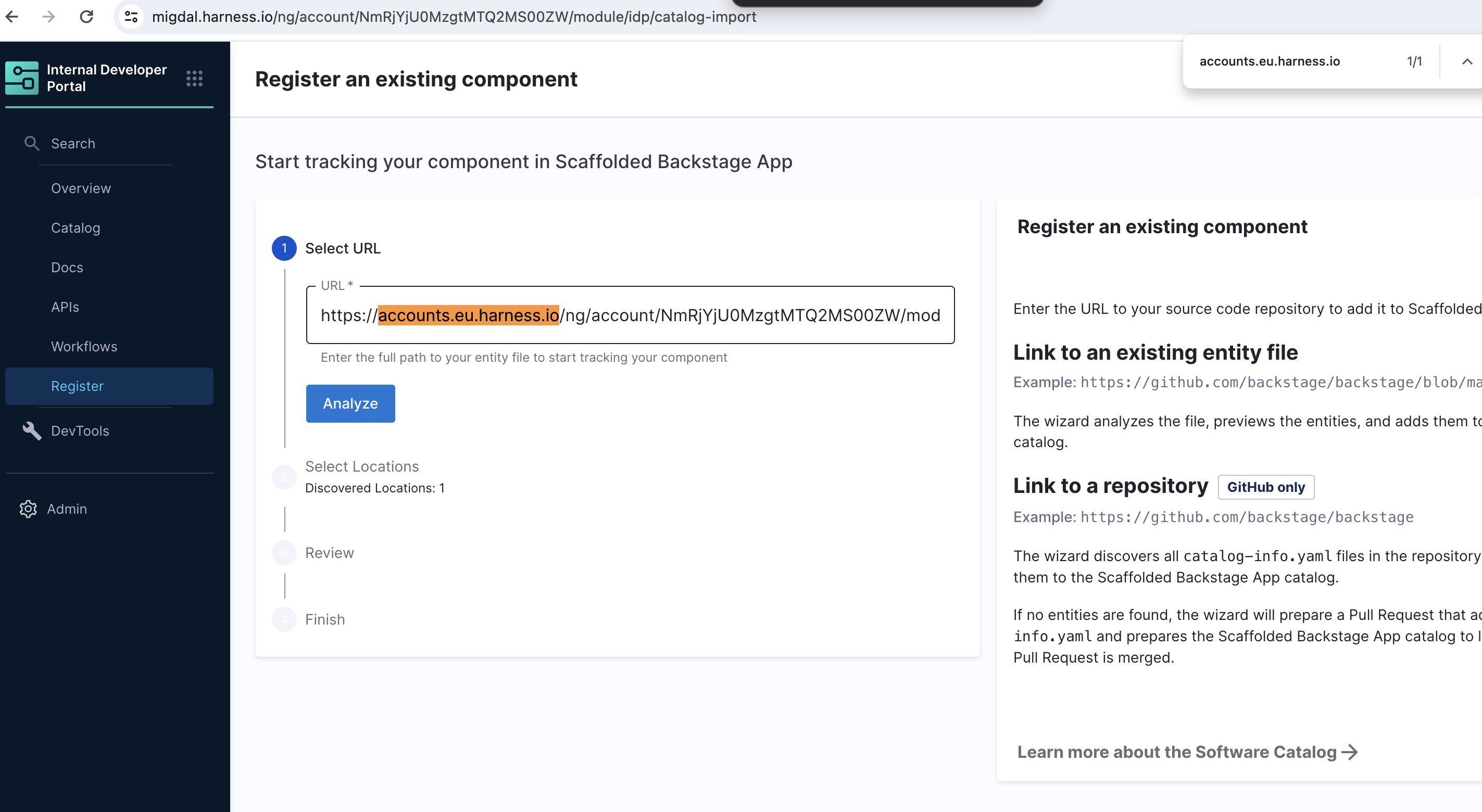
- Select Import.
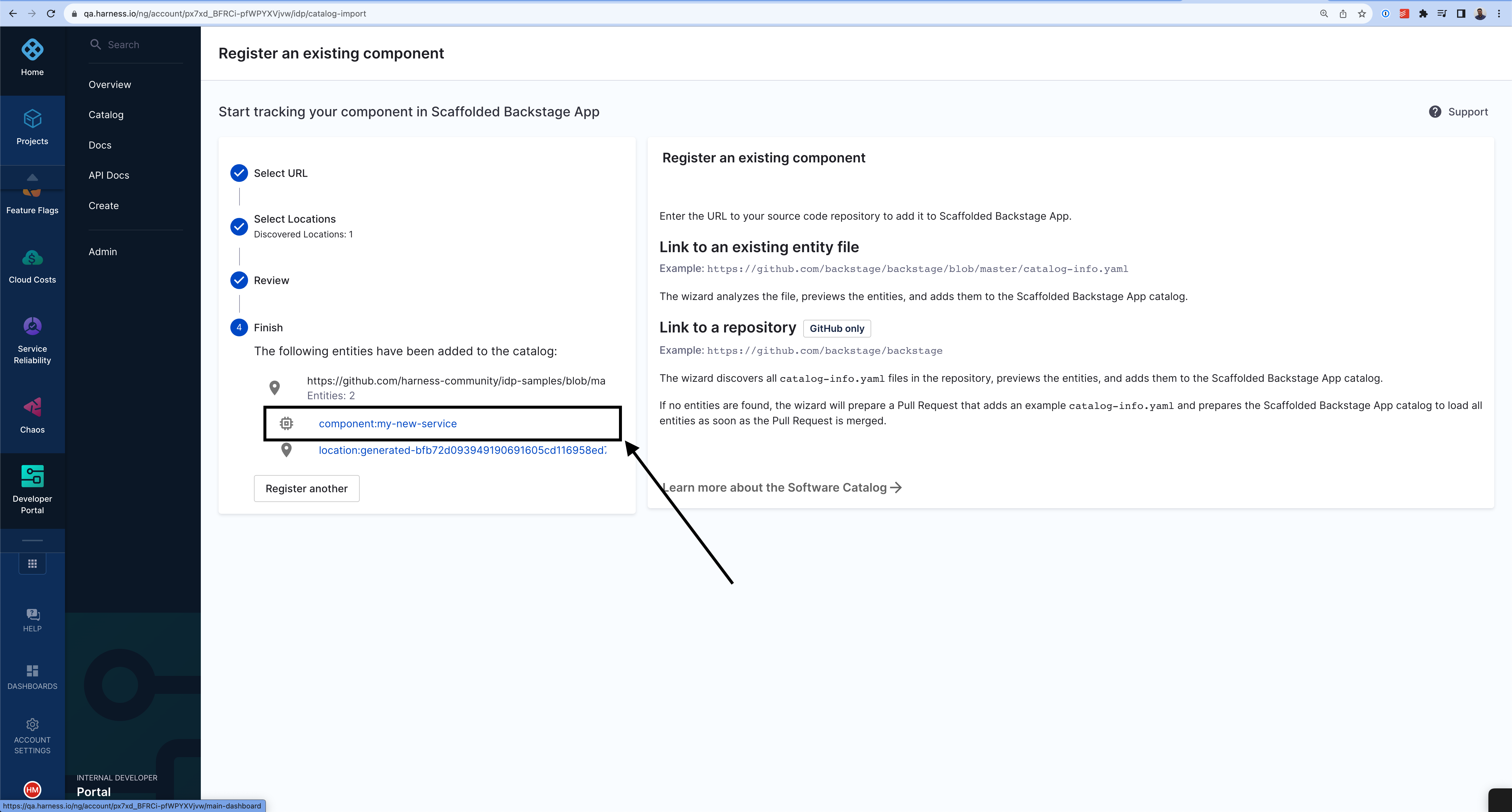
The new component will be available in your catalog.
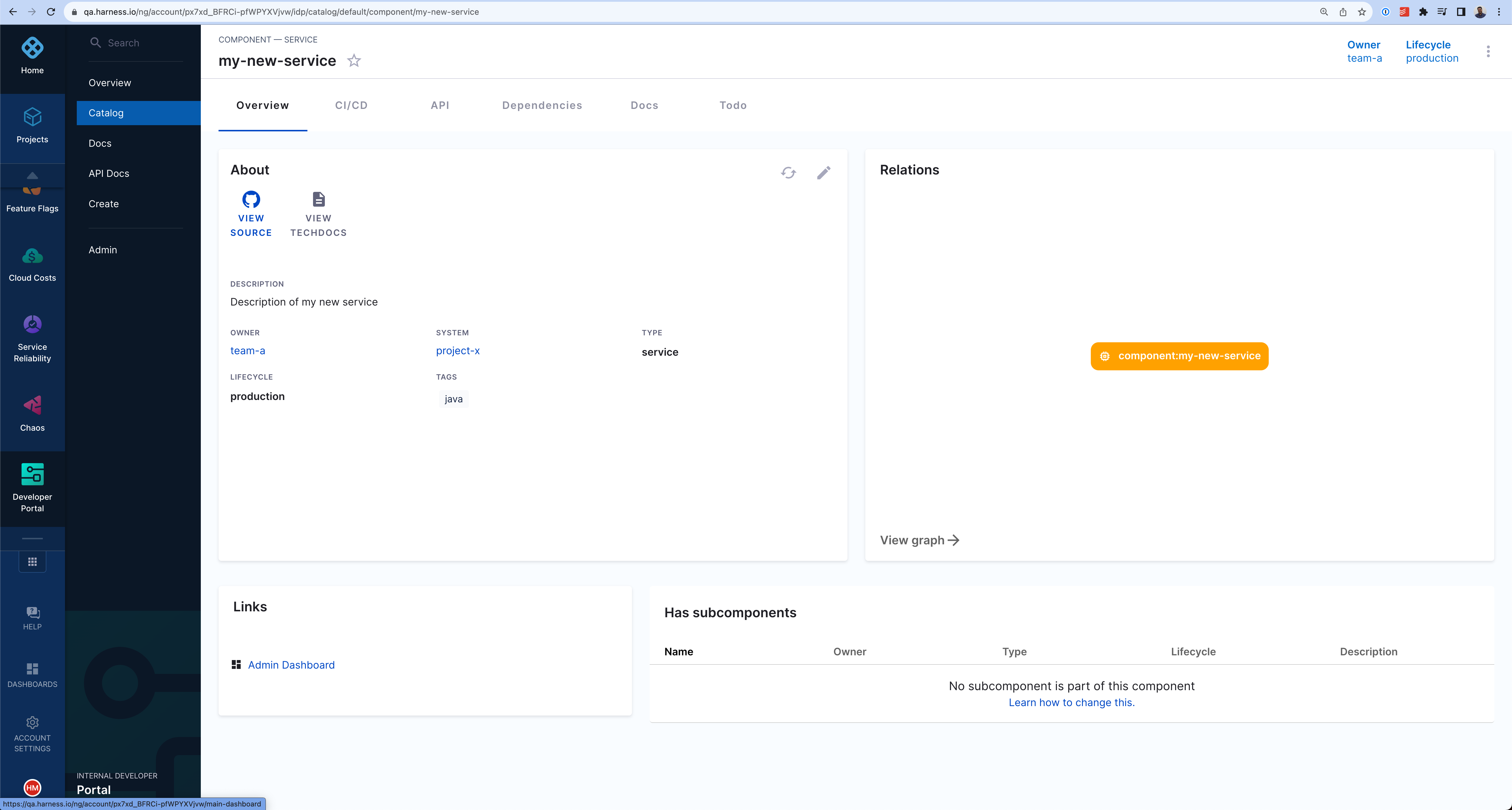
Register multiple software components together
We can register multiple catalog-info.yaml in the following ways.
- If all your
catalog-info.yamlare in the root of the same repo you can add the extensions in the target, as shown in the example below and it will register all the components.
apiVersion: backstage.io/v1alpha1
kind: Location
metadata:
name: example-all
description: A collection of all Backstage example entities, except users, groups, and templates
spec:
targets:
- ./all-apis.yaml
- ./all-components.yaml
- If the
catalog -info.yamlis scattered across repos and you want to register them together then mention the absolute path in the git provider. Please make sure the connector you have created has account level permissions and all the repos mentioned under targets are under that same account.
apiVersion: backstage.io/v1alpha1
kind: Location
metadata:
name: food-delivery
description: A collection of all example entities, except users, groups, and templates
spec:
targets:
- https://github.com/account-name/location-service/blob/main/catalog-info.yaml
- https://github.com/account-name/member-service/blob/main/catalog-info.yaml
- https://github.com/account-name/delivery-service/blob/main/catalog-info.yaml
- https://github.com/account-name/order-service/blob/main/catalog-info.yaml
- https://github.com/account-name/menu-service/blob/main/catalog-info.yaml
Delete/Unregister Software Components
- Navigate to the Catalog page, and select Component under Kind, here we are de-registering a template
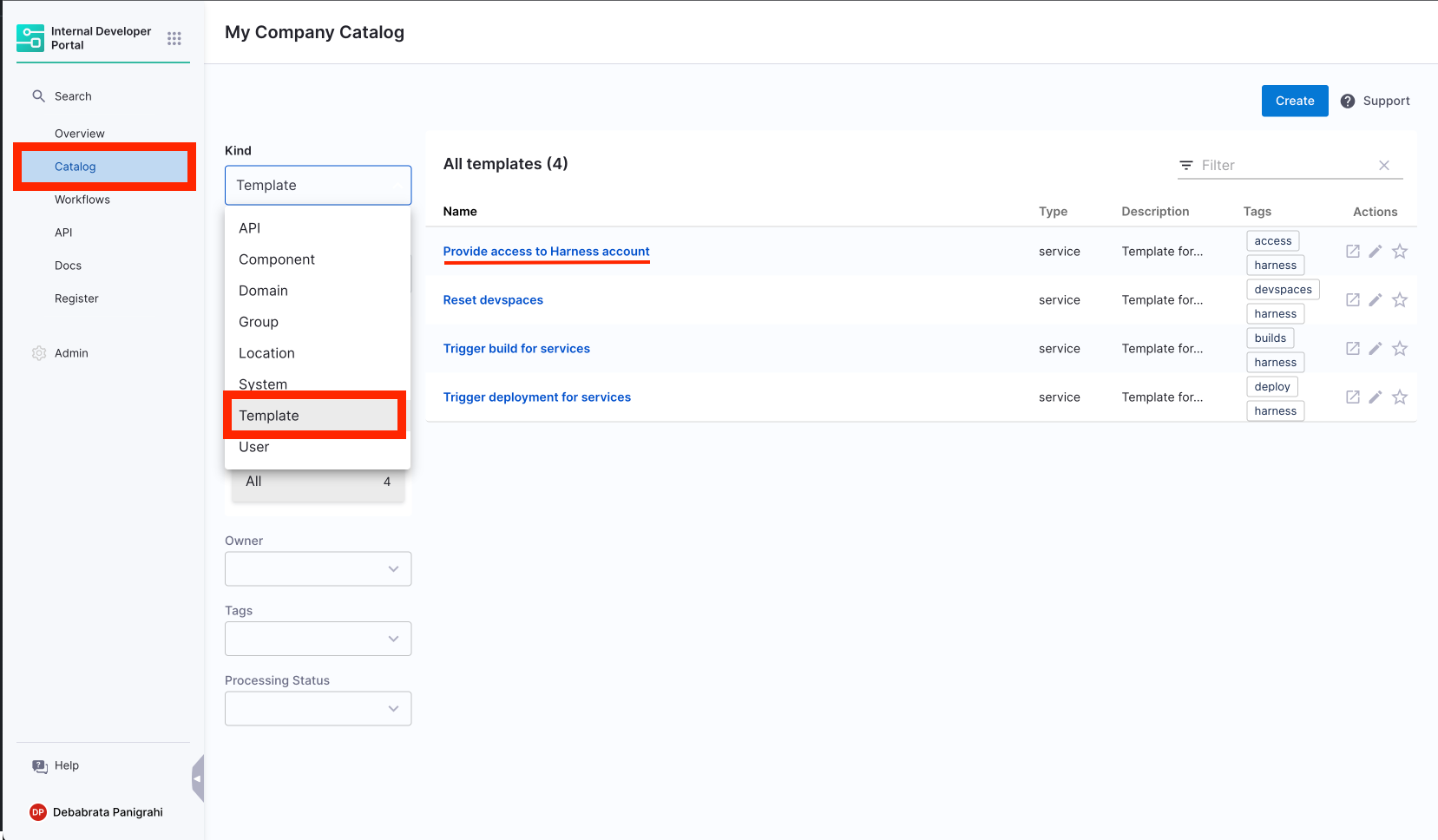
- Select the Template Name you want to Unregister.
- Now on the Template overview page, click on the 3 dots on top right corner and select Unregister Entity.
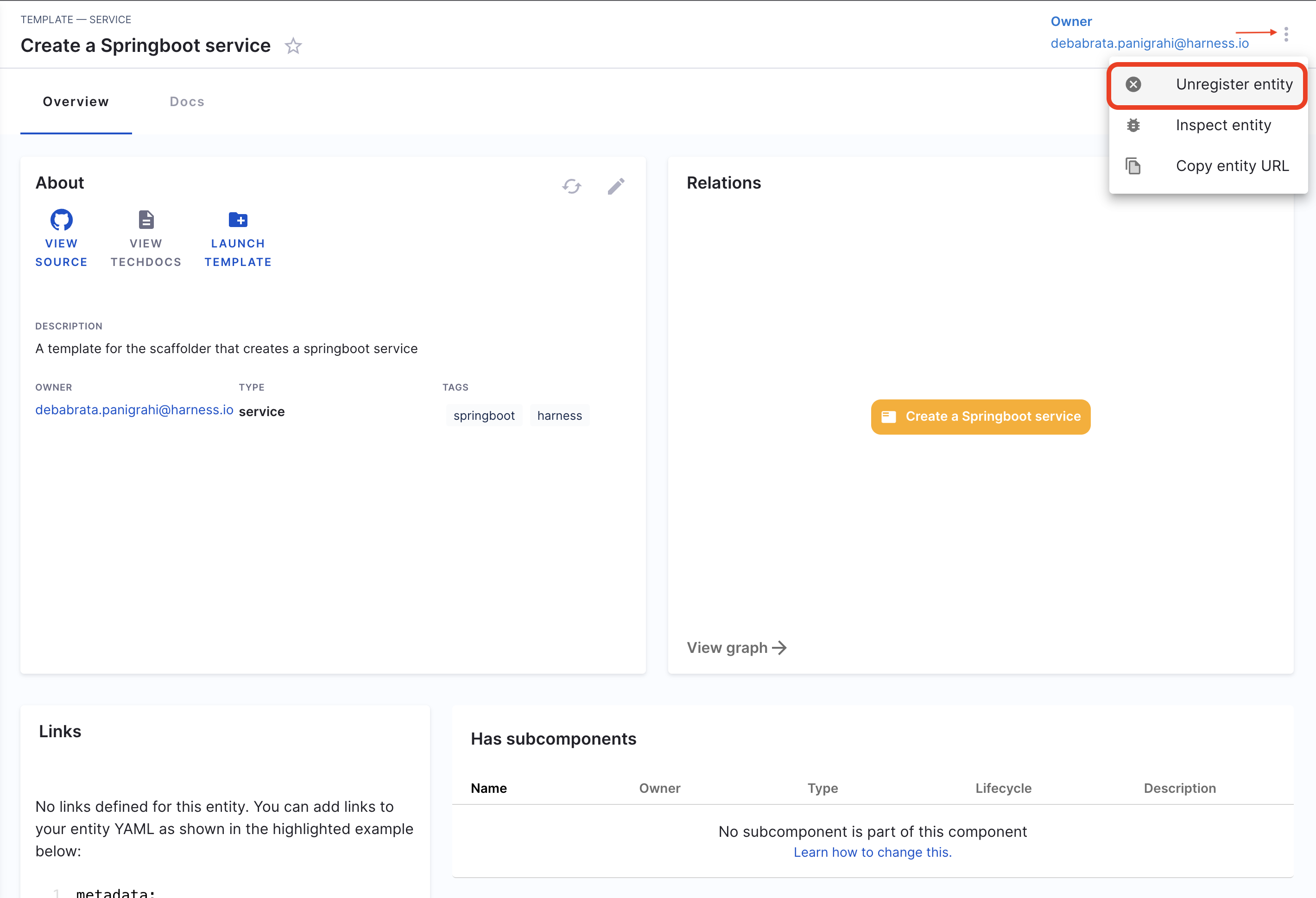
- Now on the Dialog box select Unregister Location.
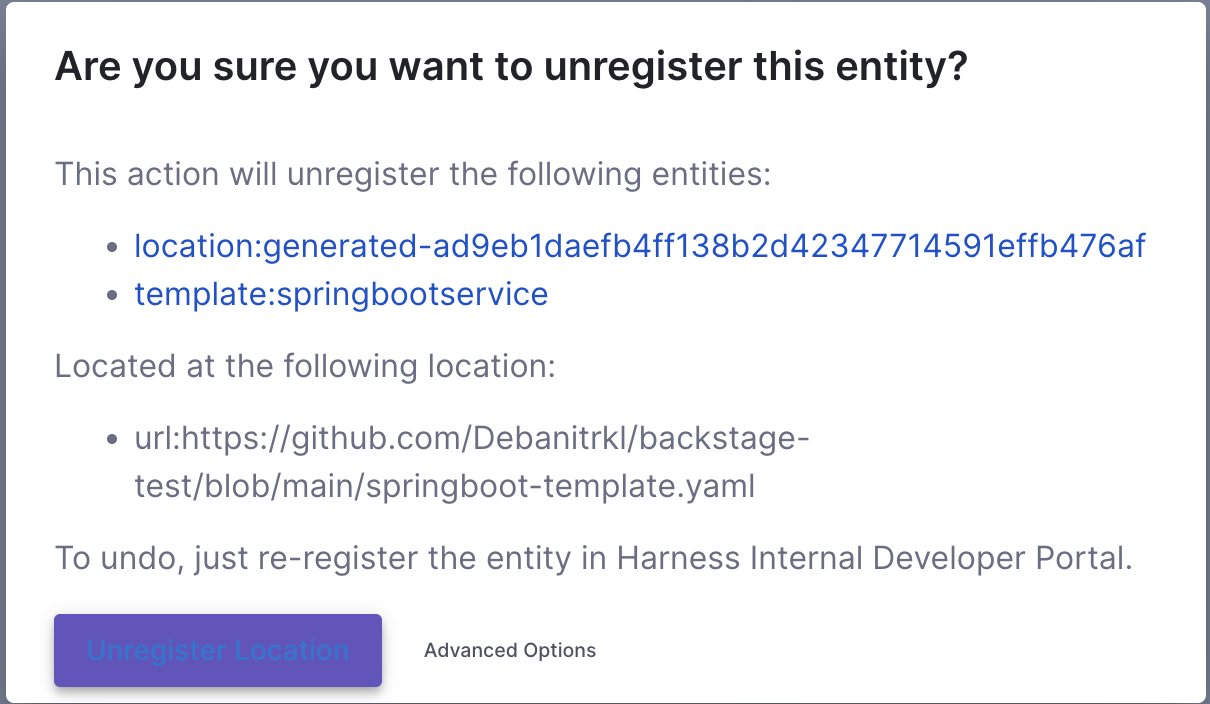
- This will delete the Template.
Troubleshooting: Failed to register
If, after registering an entity, your're unable to find the same in your catalog, check the Devtools Plugin for Unprocessed Entities. If it's under the Pending tab, wait a few minutes for registration to complete. If it's under the Failed tab. try re-registering the entity.
